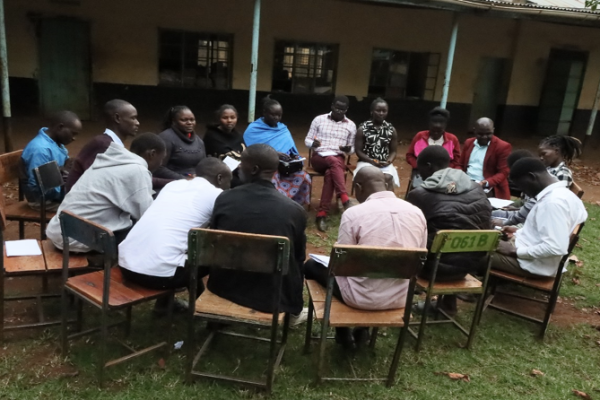Author: Dr. Joanes Atela
As the world reconfigures its efforts towards addressing the changing nature of global challenges such as health-related challenges, climate change, and others, sustainable recovery from these challenges has become a major agenda. In many developing contexts such as Africa, efforts to recover from global intractable challenges have been marred with significant ‘rush’ to return to economic normalcy, leading to increased risk accumulation, greenhouse gas emission, health hazards, disaster risks among others. African countries are currently re-engaging the world in green recovery dialogue, climate change and Disaster Risk Reduction in line with the SDGs.
At the same time, the continent is experiencing a key gap in the use of scientific evidence in policy planning and actions towards responding to global challenges. While there is an increasing attention and research on these challenges and their linkages e.g. ongoing work on green recovery from COVID-19 which considers climate change in COVID response, the consumption of this evidence and demand from policy makers, is weak resulting into reactionary or copy-paste policy actions.
Additionally, while these global challenges coexist within similar social contexts, there is limited understanding of how they can be addressed in a synergistic manner. Consequently, the response to the global challenges in Africa remains relatively unilateral and misses the opportunity to achieve multiple societal wins.
In the year 2021, the Africa Research and Impact Network has engaged more than 3000 research, policy and practice experts through over 30 Science-Policy dialogues aimed at discussing Africa’s options for tackling these global interactable challenges in a synergistic and sustainable way. A number of insights have emerged from the dialogue series that needs to be consolidated for progressive action.
The ARIN 2021 Reflective Conference
The ARIN 2021 International Reflective Conference themed, Evidence-driven Sustainable Recovery from Global Intractable Challenges builds on synthesis and insights from the convenings undertaken across the three challenge areas: health, climate change and disaster risks.
The aim is to begin a dialogue on how research evidence can be better used to strengthen Africa’s leadership in managing global challenges.
The conference is scheduled to take place on 25, 26, and 29 November 2021 and is intended to
- showcase the key highlights from the Science-Policy (S-P) convenings
- explore action agenda to strengthen the evidence-based policy-making (EBPM) in Africa towards addressing the three challenge areas and their interactions.
About the Africa Research and Impact Network (ARIN)
The ARIN is a network of over 200 researchers and policy makers across 36 African countries aimed at promoting research excellence and dialogue on best research and impact practices. The ARIN provides one of the unique convening platforms for science-policy interface in Africa building on evidence. It recognises that Africa is home to multiple researchers, innovation and best policy practices but these remain poorly shared, learnt from to inform impactful Research and Development Agenda. The ARIN therefore provides a peer review platform where best research and impact practices from different African contexts are shared, profiled and leveraged to inform transformative policy actions.
Ladies and Gentlemen, I know these are not normal times, the pandemic is still here with us and we have been confined in webinar after webinar in efforts to bring thoughts together. I do hope you will find this reflective conference useful and a good Christmas Gift as we think of a more transformative year 2022.

